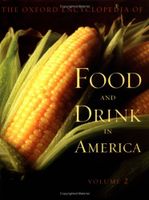Advertisement
Fats and Oils: Industrial Oils and Shortenings
Appears in
Published 2004
As they moved from a self-sufficient rural setting to newly industrialized cities in the late nineteenth century, increasing numbers of Americans had to pay cash for the cooking fat that on the farm had been a substantially free by-product of livestock husbandry. An array of more economical ersatz butters, commercially processed lard, and newly perfected vegetable oils were developed and marketed. Giant food processors such as Armour used the by-products of meatpacking to sell industrially rendered lard for cooking and soap making. Soap makers such as Proctor and Gamble used their fat know-how to produce Crisco, a vegetable oil–based lard that was sufficiently cheaper than the real thing. Spry, a similar product, was explicitly marketed for its economy: “To the woman who must make ends meet!” ran the headline from a Spry advertisement as late as 1953.


